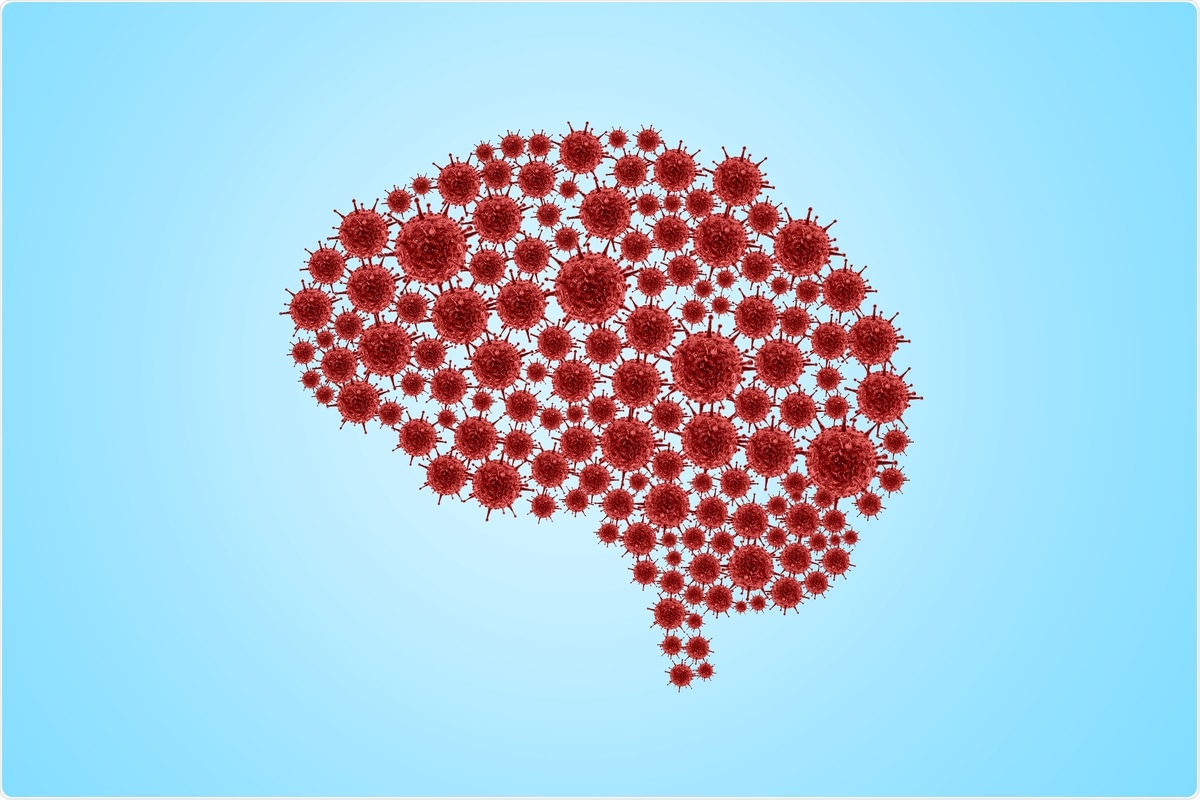In late 2019, a novel coronavirus was detected in Wuhan, China, later called severe acute respiratory syndrome coronavirus 2 (SARS-CoV-2), which causes coronavirus disease 2019 (COVID-19). On March 11, 2020, the World Health Organization declared COVID-19 a pandemic. The COVID-19 pandemic continues to mutate and evolve, causing millions of cases of mortality and morbidity worldwide.
 Study: How different pre-existing mental disorders and their co-occurrence affects clinical outcomes of COVID-19? A study based on real-world data in the Southern United States. Image Credit: DOERS/ Shutterstock
Study: How different pre-existing mental disorders and their co-occurrence affects clinical outcomes of COVID-19? A study based on real-world data in the Southern United States. Image Credit: DOERS/ Shutterstock
Individuals with pre-existing mental disorders, including internalizing disorders (such as post-traumatic stress disorder, depression, panic disorder, and generalized anxiety disorder), externalizing disorders (such as conduct disorder and drug or alcohol dependence), and thought disorders (such as schizophrenia, obsessive-compulsive disorder, and mania) might be particularly vulnerable to contracting COVID-19 and display deterioration in their mental health.
A team of researchers from the USA conducted a study to assess how pre-existing mental disorders are associated with a SARS-CoV-2 infection and how different clusters of mental disorders affect COVID-19 clinical outcomes. The authors used population-based electronic health record data from a state-wide cohort of all confirmed and probable COVID-19 adult cases in South Carolina, USA, from March 6, 2020, to April 14, 2021, to provide database evidence to inform healthcare delivery for people with pre-existing mental disorders during the COVID-19 pandemic.
A preprint version of this study, which is yet to undergo peer review, is available on the medRxiv* preprint server.
The study
This study was conducted on 55,300 patients with pre-existing mental disorders, of which 23,410 had internalizing disorders only, 21,200 had externalizing disorders only, and 618 had only thought disorders. Eight thousand seventy-six patients had both externalizing and internalizing disorders, 732 had both thought and internalizing disorders, and 388 had thought and externalizing disorders. Eight hundred seventy-six patients had all three clusters of externalizing, internalizing, and thought disorders.
The data showed that people with pre-existing mental disorders represented a higher proportion of COVID-19 associated hospitalizations and deaths when compared to those without a respective cluster of mental disorders.
Individuals with pre-existing mental disorders had a higher proportion of asymptomatic COVID-19 (Internalizing disorders: 54.2% vs. 53.9%; Externalizing disorders: 57.6% vs. 53.7%; Thought disorders: 65.1% vs. 53.9%; Any cluster of mental disorders: 55.5% vs. 53.8%) and severe cases of disease (Internalizing disorders: 18.9% vs. 12.2%; Externalizing disorders: 15.1% vs. 12.5%; Thought disorders: 13.3% vs. 12.7%; Any cluster of mental disorders: 16.8% vs. 12.2%). However, participants with pre-existing mental disorders displayed a lower proportion of mild symptomatic COVID-19 (Internalizing disorders: 26.9% vs. 33.8%; Externalizing disorders: 27.3% vs. 33.8%; Thought disorders: 21.6% vs. 33.4%; Any cluster of mental disorders: 27.7% vs. 34.1%).
This study displays multivariate results that suggest that individuals with pre-existing mental disorders are at an elevated risk of COVID-19 associated hospitalization and death. Regarding COVID-19 hospitalization, the adjusted odds ratio (OR) of having externalizing, internalizing, and thought disorders was 1.49, 2.27, and 4.41. With deaths associated with COVID-19, the adjusted OR of having externalizing, internalizing, and thought disorders was 1.33, 2.25, and 4.48.
However, there was a decrease in the risk of mild cases associated with pre-existing mental disorders, externalizing disorders, internalizing disorders, and thought disorders were all negatively associated with mild cases. When an individual presented with any two clusters of disorders, this was positively associated with COVID-19 related hospitalization and death.
Specifically, when compared to individuals with no pre-existing mental disorders, the odds of being hospitalized was 1.5 times greater in individuals with externalizing and internalizing disorders, 2.29 times greater among individuals with thought and externalizing disorders, 2.34 times greater among Individuals with thought and internalizing disorders, and 2.35 times greater among individuals with three clusters of mental disorders.
Similar results were also displayed with COVID-19 related deaths, with the odds being 1.02 times greater in individuals with externalizing and internalizing disorders, 2.17 times greater in individuals with thought and internalizing disorders, 2.67 times greater in individuals with thought and externalizing disorders, and 67% greater in those with three clusters of mental disorders.
Implications
The results from this study suggest that individuals who suffer from pre-existing mental disorders, especially thought disorders and multiple clusters of disorders, should be included with the other high-risk groups within the population, such as the elderly, due to the requirement of enhanced preventative triage, and treatment strategies.
Regarding further research into this issue, there needs to be extended differentiation of the impacts of mental disorders on COVID-19 clinical outcomes by severity/stage of illness, the inclusion of a comprehensive set of social determinates of health in the analysis, and exploration of the interaction between different clusters of mental disorders and pre-existing somatic conditions.
*Important notice
medRxiv publishes preliminary scientific reports that are not peer-reviewed and, therefore, should not be regarded as conclusive, guide clinical practice/health-related behavior, or treated as established information.
- Qiao, S. et al. (2021) "How different pre-existing mental disorders and their co-occurrence affects clinical outcomes of COVID-19? A study based on real-world data in the Southern United States". medRxiv. doi: 10.1101/2021.10.21.21265340.
Posted in: Medical Science News | Medical Research News | Disease/Infection News
Tags: Alcohol, Alcohol Dependence, Anxiety, Anxiety Disorder, Coronavirus, Coronavirus Disease COVID-19, Depression, Electronic Health Record, Healthcare, Mania, Mental Health, Mortality, Pandemic, Panic Disorder, Post-Traumatic Stress Disorder, Research, Respiratory, SARS, SARS-CoV-2, Schizophrenia, Severe Acute Respiratory, Severe Acute Respiratory Syndrome, Stress, Syndrome, Triage
.jpg)
Written by
Colin Lightfoot
Colin graduated from the University of Chester with a B.Sc. in Biomedical Science in 2020. Since completing his undergraduate degree, he worked for NHS England as an Associate Practitioner, responsible for testing inpatients for COVID-19 on admission.
Source: Read Full Article
